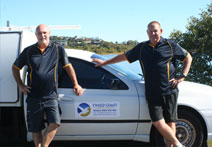Pat Ivers and Emily Armstrong reveal the way they filmed at punk’s many crazy venues while surviving down gallery wine and cheese.
Virtually every evening involving the mid ’70s and very very early ’80s—sometimes significantly more than once—Pat Ivers and Emily Armstrong lugged tv video clip digital digital cameras and equipment that is lighting Lower Manhattan. They caught a huge selection of shows from bands whom defined the period: think Dead Boys, chatting minds, Blondie, Richard Hell, Bad Brains. Pat and Emily’s movies became underground treasures, cherished because of the bands they shot as well as the scene children whom crowded into community bars to view Nightclubbing, their cable access show. Between shoots, CBGB’s owner Hilly Kristal clumsily set up them up with times, a Dead Kennedy crashed on Pat’s sofa, and additionally they invested per night in prison with Keith Haring and David Wojnarowicz.
The origins of their “spiritual following”: to capture the fleeting moment in New York music when rent was $60 and Iggy Pop was two feet away in a four-part series for Document, Pat and Emily trace. On the next months, the set will soon be united statesing us through the bands and venues that best capture the inimitable power which was early-days punk. For his or her very first edition, Pat and Emily simply just take us through their modest beginnings—and why Andrew Yang could be onto one thing with universal basic earnings.
Pat Ivers—We came across at Manhattan Cable. We had been both employed in general public access. Emily would book every one of the crazy general public access producers that could appear in each and every day, and I also would utilize them to create their insane programs. I had been shooting bands when this occurs; We started aided by the unsigned bands event in August of 1975. I happened to be shooting with a lot of guys up to then, and so they didn’t like to carry on. Therefore, We came across Emily.
Emily Armstrong—I experienced terrible jobs. One evening, I had to stay when you look at the electric panel space and each time among the switches flipped over, we flipped it right right right back. Like, which was my work.
Pat—For hours.
Emily—Laughs i did son’t have the best jobs that’s for yes, but we had been acquainted with the gear. That has been actually, i do believe, the answer to the success. We had use of it, and now we knew just how to put it to use.
Pat—Once I began filming, i did son’t wish to stop that it was an ephemeral moment because I could see. It was something which had been electric, also it wasn’t gonna last. It had been minute with time. It absolutely was this focus of power. To document it did actually me personally just like a religious following. CBGB’s had been the house of DIY, and thus everybody did something. I really couldn’t actually play any instruments. I happened to be too timid to sing. Therefore, my share had been video that is doing.
Emily— the bands would be given by us a content of these shows as frequently as we could, and that actually one thing unique. After which as soon as we had our cable television show, they might get shown on tv that has been uncommon in those days. We arrived appropriate in at the brief minute before portable VHS cameras. Therefore we had been cautious with this noise. CB’s did a mix that is separate the majority of our material from CB’s has actually remarkably good noise for the period of time. The folks in CB’s were our buddies; these were our next-door next-door neighbors. We lived just about to happen. So that it has also been like our regional club. If i desired to possess a alcohol, i possibly could simply get here. Laughs
Kept: Pat Ivers and Emily Armstrong. Right: Pat Ivers.
Emily—We’re additionally ladies, and now we had been the actual only real individuals carrying it out, and we also had been two girls in high heel shoes and punk garments. We had been pretty distinctive hunting. We don’t think We noticed in the time exactly just how uncommon it had been.
Pat—But one of several actually fabulous reasons for the punk scene ended up being it absolutely was, for my experience, extremely nonsexist. No body hassled you about attempting to take action because you’re a lady.
Emily—Yeah, never.
Pat—It really was following the punk scene that started initially to take place. I became shocked because we never encounter it, you understand, among our individuals. Laughs It like when the record business actions up, things like that, then chances are you arrived up against it, but our individuals? No.
Emily—And also with us being there and working with us and helping us get the lighting and good sound if we went into a different club in a different town or in town, most of the time, the people working there were 100 percent down. We needed to make it happen prior to the club exposed and then leave following the club pretty much closed because we’d this hill of gear; we had been actually friends using the staff more.
Pat—It’s kinda difficult to communicate how hefty the gear ended up being in those days and simply how much of it there was clearly to complete any such thing. It had been simply enormous. Plus it’s additionally difficult to communicate just just how restricted the offerings had been on television. The thought of seeing a musical organization from downtown on television, it had been astounding.
Emily—It ended up being pre-MTV.
Pat—Yeah, MTV began like ’81. So, you realize?
Emily—We worked in cable tv therefore we knew it absolutely was coming, nonetheless it ended up being therefore maybe not here yet. I am talking about, the first times of cable ny, that which was occurring in ny was just taking place in, like, a small number of other towns where they really had local access and these were literally wiring within the city building because they build. Like searching holes and wiring up specific structures. It had been actually Cowboys and Indians.
Pat—It took us years in our building before we even got it. We might need to visit, there clearly was a bar called Paul’s Lounge on 11th Street and third Avenue, and when we began doing our show Nightclubbing, that is where individuals would head to watch it. You understand, a lot of people didn’t have cable downtown.
They wired the top of East Side. They wired the top of Western Side. But Lower Manhattan, Lower East Side, are you currently joking me personally?
Emily—we had been off Houston Street like down Orchard like one, two, three structures down. We had been final since there wasn’t a complete large amount of earnings here. And most likely great deal of people that would default on the bills and material.
Pat—You understand, Lower East Side, the cops wouldn’t come; the Fire Department would scarcely come.
Emily—The trash will be found actually erratically in the past in the’70s that are late.
Buttons gathered by Pat Ivers and Emily Armstrong.
Pat—Again, it is hard wife for sale to communicate simply how much of a area—
Emily—You see these images of the abandoned lots. Every solitary wall surface is graffiti. It absolutely was actually like this. That’s not only one make of photo they chosen. It absolutely was actually that way. You might walk for obstructs also it would seem like that. And also you wouldn’t walk. I became afraid to walk down Avenue A. We stuck to 1st Avenue, second Avenue. But, you understand, since the Lower Side was such a place that is nasty flats were actually, actually low priced. My apartment that is first was66 30 days. Once I relocated to Orchard Street—because we came across my boyfriend then, my hubby now—he resided on Orchard Street in this building that were renovated into the ’20s, therefore it had, like, genuine restrooms and things like that. I remember fretting it and thinking ‘how am I going to pay for $140 in lease.’
Everyone we knew had low priced flats. Individuals lived in crazy buildings that are industrial one sink. It had been amazing. Individuals didn’t need certainly to work a great deal. You can have a job that is part-time. Bands had rehearsal spaces, fairly priced.
Pat—It’s an argument that is real the yearly wage that Andrew Yang is discussing. It provides individuals the opportunity to be imaginative. Laughs
Emily—And everyone ended up being super thin cause we couldn’t have that much food. Laughs we’d several things yet not a large amount of things.
Pat—We strolled everywhere.
Emily—Being a person that is young, working with these actually high rents and material, we didn’t have that issue. So we would visit, like, art spaces to obtain free wine and consume cheese and things like that. There had previously been this Irish put on 23rd Street which had these steamer trays out in the exact middle of the space. There’d be free hors d’oeuvres. We went delighted hour. It’d be, like bad meatballs and material. I happened to be speaking about by using my hubby: ‘That will be my supper.’ Things had been cheaper so that as outcome, life had been cheaper. You had been simply on the market.






Leave a Reply
You must be logged in to post a comment.